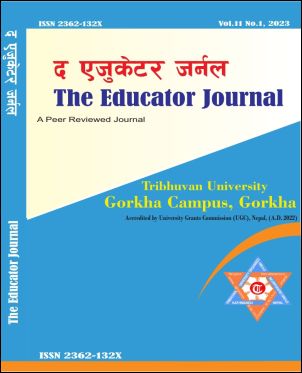The Emergency Contraceptive Pills: Knowledge, Attitudes and Practice among Students at Gorkha Campus
DOI:
https://doi.org/10.3126/tej.v11i1.54459Keywords:
Attitude, Cross-Sectional Emergency Contraceptive Pill (ECP), Knowledge, PracticeAbstract
Unplanned and unwanted pregnancy is one of the leading causes of maternal mortality and morbidity in South Asia. Despite the availability of a range of modern and effective contraceptives, unwanted and unplanned pregnancies continue to occur. Emergency contraception is a method to prevent pregnancy in women who have had unprotected sex or when birth control methods have failed. A cross-sectional study was carried out to determine the knowledge, attitude and practice (KAP) of students of Gorkha Campus regarding Emergency Contraception Pills (ECP). Total 98 respondents were selected using the census sampling technique, with self-administered questionnaires for data collection. Out of the total sample, most of the respondents were female (88%) , nearly three-quarters (72%) were from age18 to 21 years, and more than half were Janajati. Only 35% of the respondents knew that I-Pill is ECP, while half of them did not know the best time to use it. It was a pity that only more than a fifth (22.4%) of the respondents had adequate knowledge on ECP. The mean score of knowledge was 1.31, and St.deviation was 1.30. The student’s streams of education were significantly associated with adequate knowledge, P<0.5 and the rest of the variables were insignificant. Thought the knowledge of ECP was low, had a positive attitude towards ECP, and only few (7%) of the respondent had used the ECP till the date of data collection. Based on the study finding, educational intervention related to ECP is recommended for the students of Gorkha campus.




